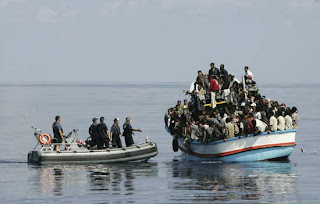
Garbage Dreams is a 2009 documentary film produced, written and directed by Mai Iskander. The documentary premiered at the 2009 South by Southwest (SXSW) Film Festival, in Austin Texas. SXSW was originally a music festival, and was in fact one of the largest music festivals in the United States until 1994, when the SXSW festival came to incorporate both music and film.
Garbage Dreams follows the lives of three egyptian teenagers who were born into the Egyptian trash trade. The documentary shows to the viewer what it's like for these three teens to grow up in what was referred to as "the world's largest garbage village". According to the documentary this garbage village, which lies on the outskirts of Cairo is home to over 60,000 "Zaballeen" which is Arabic for "garbage people". The documentary shows the daily lives of these three teens, it shows us behind the scenes footage of the zaballeen community, and how in actuality they are just normal, decent, hard working human beings doing the only work they can to survive. The documentary also reveals the effects of globalization on the zaballen's trade, and how the three teens who represent a sort of microcosm of this community, deal with the impact of this issue and how it effects their futures.
Besides the SXSW Film Festival, Garbage Dreams has been screened at numerous other festivals across the United States. At the Bermuda International Film Festival as well as at the Vail Film Festival, Garbage Dreams won the awards for "Best Documentary". Mai Iskander herself has gone on to win the award for "World Cinema Best Director" at the Phoenix Film Festival, the same festival where the documentary won the "World Cinema Audience Award". Former U.S. Vice President Al Gore said of the film, "Garbage Dreams is a moving story of young men searching for ways to eke out a living for their families and facing tough choices as they try to do the right thing for the plane. Mai Iskander guides us into a 'garbage village,' a place so different from our own, and yet the choices they face there are so hauntingly familiar. Ultimately, Garbage Dreams makes a compelling case that modernization does not always equal progress." The documentary has also gone on to win the Al Gore REEL Current Award at the Nashville Film Festival.
Watch the Documentary.





